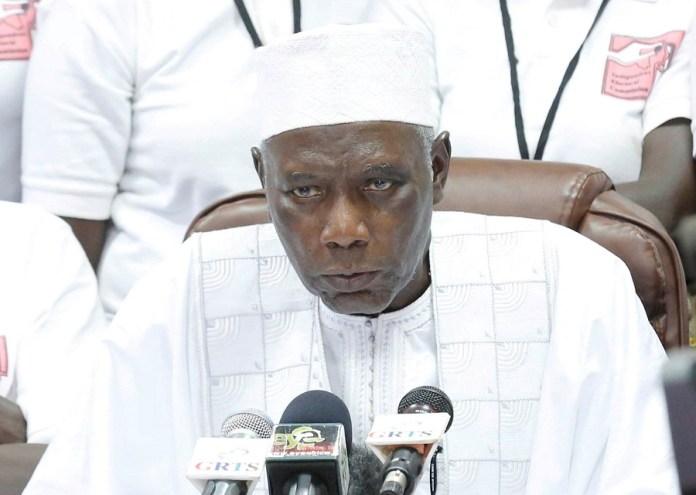By Omar Bah
At least three respected rights groups, the Right 2 Know Coalition-Gambia, Democratic Union of Gambian Activists (DUGA) and Gambia Participates have written to the Independent Electoral Commission requesting crucial information about the December presidential election.
In their statement shared with The Standard, the groups said: “We seek information on how these upcoming polls are being conducted by your good offices. We have written to you in the past, the first of which was on 17th October 2016 on the same issue, albeit under very different circumstances. We have subsequently written to your good self on two other occasions on 16 September 2019, requesting that you normalise the issue of diaspora voting, and respect the rights of the Diaspora to participate in the electoral processes. We will place it on record that we have never received a response to any of our letters. We hope that this time around we will receive a response”.
The groups further explained: “As the lead agency tasked with conducting elections in The Gambia, the IEC’s awesome responsibility of upholding and adhering to its legal mandate and principles of integrity and fair play, cannot be overstated. We realise the responsibility entrusted to it by the constitution and the various legislative frameworks that legalizes its existence. It is in this regard that the R2K Coalition-Gambia wishes to enquire from the IEC several critical aspects of the management of the elections process as we inch closer to the December Presidential elections in 2021 and the National Assembly elections in 2022.”
The group said they have engaged the IEC chairman’s good offices as far back as November 2019 to discuss the levels of preparations for these upcoming elections, “and have in no small measure stretched our hand in the spirit of partnership to assist where needed, especially in terms of the external census, which is a prerequisite for Diaspora voter registration exercise. However, despite commitments made by the IEC to work with all stakeholders in this process, such commitments have come to nothing. We therefore now find ourselves in a challenging situation with less than 235 days to go before the polls, and we are yet to receive information on the voter registration regime both in and outside of the country. We are also yet to receive a road map as to how the elections calendar will be deployed.”
The groups said they are anxious that without proper planning, and timely information on these fundamental questions, issues of credibility, transparency and ability to deliver a free and fair elections by the IEC would arise.
“In the current national context, the groups added, where political tensions and suspicions amongst political parties and their supporters run high, combined with the largest number of political parties and independent candidates being registered in our history, the stakes and risks remain a real threat to peace and stability if elections are not properly managed. “We are also faced with the fact that there is now a court ruling, which compels you to rectify the policy of Diaspora disenfranchisement that the IEC and Gambia government had actively practiced since the dawn of the Second Republic. The courts have affirmed the rights of every Gambian (in and outside of the country) to vote and be voted for, as stated in the constitution. We are now awaiting with heightened expectation that this will be fulfilled as part of your legal and constitutional obligation to ensure that every Gambia living abroad is registered so as to afford them their right to cast their ballot when the time comes.”
The groups also want the Electoral Commission to share with them the elections road map detailing: “If and when an external census will be conducted to capture the number of Gambians residing abroad for the purposes of preparing the ground for their registration as voters (if they so choose); the registration process at national and international level (for the Diaspora); The dates and timelines for the above”.
“We also have other queries regarding the rationality of the upward revision of deposits for citizens vying for political office, which was included in the recently tabled Elections Bill, 2021 as follows:
(a) President, shall deposit or cause to be deposited with the Returning Officer, the sum of 500,000.00 (five hundred thousand dalasis); b) Member of the National Assembly, deposit or cause the deposited with the Returning Officer the sum of 50,000.00 (fifty thousand dalasi)
c) Mayor or Chairperson deposited or cause to deposited with the returning officer, the sum of 50,000.00 (fifty thousand dalasis) and (e) Councillor, deposit or cause to be deposited with the Returning Officer, the sum of 10,000.00 (ten thousand dalasi).”



